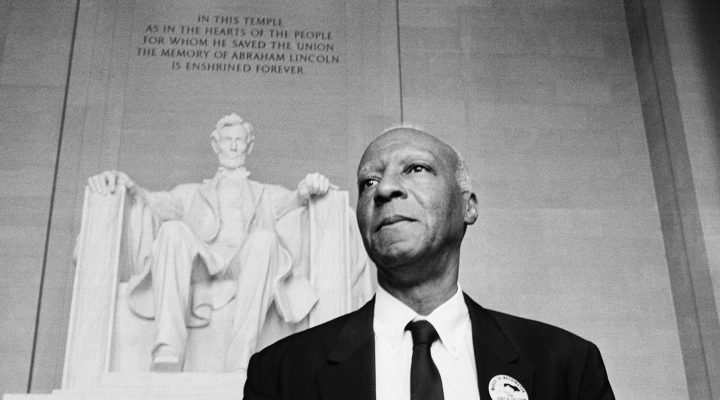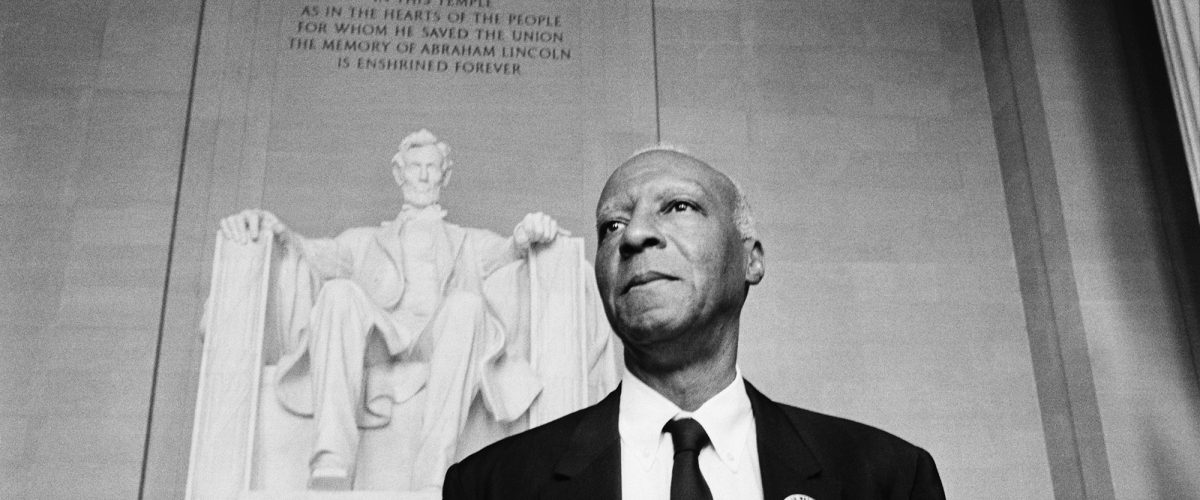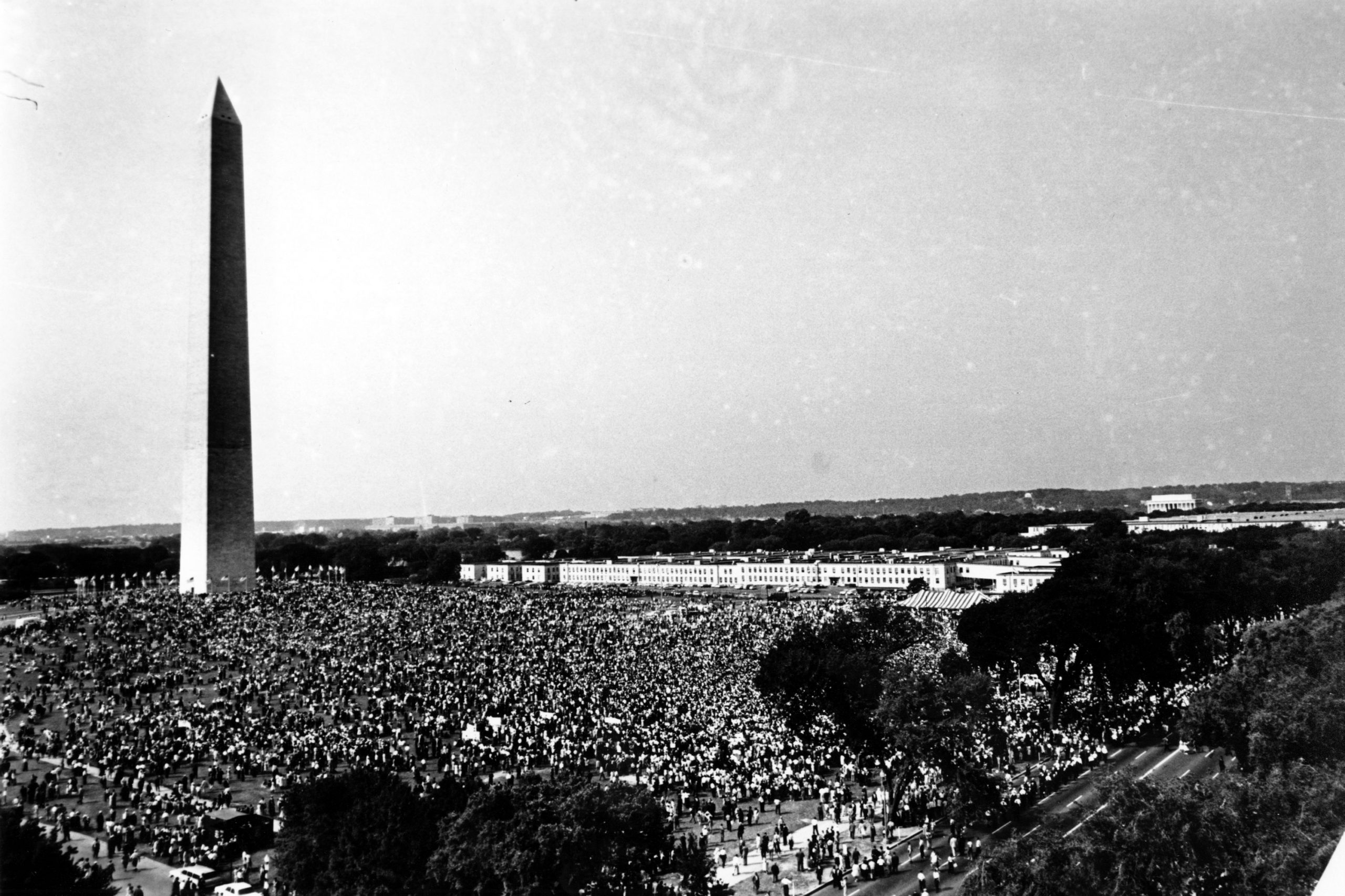
This general view shows civil rights demonstrators gathered at the Washington Monument grounds before noon on Aug. 28, 1963. The marchers will parade to the Lincoln Memorial, seen in the far background at right, where the March on Washington for Jobs and Freedom will end with Dr. Martin Luther King Jr.’s “I Have A Dream” speech. (AP Photo)
On Aug. 28, 1963, Martin Luther King Jr. gave his iconic “I Have a Dream” speech that touched millions of people around the world. King is painted as the main character of this event because of his speech, but what some history classes don’t tell you is that this march wasn’t led by King but instead by Phillip Randolph.
Randolph was born and raised in Crescent City, Fla. He attended Cookman Institute in East Jacksonville, Fla. This was the only African American high school in this area. After graduating from City College of New York, Randolph joined the Socialist Party, where he started to voice his opinions on the importance of socialism and the inequalities he saw in the workforce. He slowly became a prominent voice for the Black working class in America.
In 1941, Randolph started planning a march in Washington, D.C. But the day before the march was to happen, President Franklin D. Roosevelt met with Randolph and issued an executive order that would prevent discrimination in the workforce pertaining to defense jobs and government jobs. This put a calm to the storm Randolph had been stirring up in Washington.
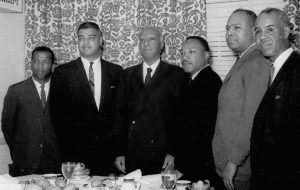
Six leaders of the nation’s largest Black civil rights organizations met in New York’s Hotel Roosevelt on July 2, 1963, to plan a civil rights march on Washington. From left, are: John Lewis, Whitney Young, A. Philip Randolph, Martin Luther King Jr., James Farmer, and Roy Wilkins. (AP Photo/Harry Harris)
Nearly 20 years later, in 1963, trouble was brewing in Birmingham, Ala., reigniting the flame to push the White House to care for the nation’s minority population. Randolph still was pushing for equal opportunity for all Black Americans and also for the passage of civil rights legislation. At first, President John F. Kennedy didn’t want to grant Randolph permission to have a march in Washington but eventually acceded and reluctantly did not oppose the march.
The Aug. 28, 1963, march happened less than three months before Kennedy would be assassinated in Dallas.
The march had a huge number of people in attendance. Calvin Trillman, an American journalist who attended the march, said he arrived at 8:30 a.m., which was three and half hours before the march was scheduled to start. By 9 a.m., several thousand people had gathered on the lawn in front of the Washington Monument. By 11 a.m., about 90,000 people had arrived for the pre-march. By the time the march started at noon, an estimated 250,000 people were in attendance.
The march and program at the Lincoln Memorial lasted three hours, not including the pre-march. Multiple speakers were scheduled to address the crowd that filled the National Mall near the Lincoln Memorial. The order of speakers was Phillip Randolph, Walter Reuther, Roy Wilkins, John Lewis, Daisy Bates, Eugene Carson Blake, Floyd McKissick, Whitney Young, and Martin Luther King Jr. as the final speaker. King chose to go last, guessing most of the crowd would be tired and wanting to leave to get out of the hot summer sun.
His speech was planned to only be 4 minutes long. However, once he started talking, 4 minutes turned into 16 minutes. And those present said most of them weren’t able to hear King’s speech. A special sound system had been installed for the outdoor event, but someone sabotaged it beforehand.
It is ironic how the most iconic speech at the march came so late that many people already had left and many who remained weren’t able to clearly hear King speak.
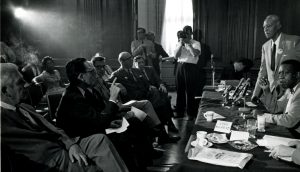
Congressional leaders ask questions about the proposed March on Washington for Jobs and Freedom from organizers American labor and Civil Rights leader A Philip Randolph (1889 – 1979) (standing, second right) and businessman and labor leader Cleveland Robinson (1914 – 1995) (seated at right), Washington, D.C., August 7, 1963. (Photo by PhotoQuest/Getty Images)
From my perspective as a college student today, there are two things we should remember and that are acutely applicable in 2023.
First, it is OK to seek help. Randolph did not create this event by himself. King did not plan this event by himself. Hundreds of unnamed people were essential to plan the event, arrange transportation, find housing and handle on-site logistics. Many people were required to turn this dream into a reality.
One of Randolph’s popular quotes is, “Freedom is never given; it is won.” Randolph and so many others alongside him had to fight a persistent fight to win what they wanted.
A guest speaker in a management class I attended told us one of the most important things to remember when trying to achieve a goal, when you come upon a roadblock, is not to ask “How?” but to ask, “Who?”
There are many things we cannot do alone. Our society has turned toward individualism. We have forgotten the importance of community and how powerful we can be when we all come together to help each other out.
An example of this is the modern church, where we have seen a substantial decrease in membership and attendance. About 65% of American adults today consider themselves Christians, down from 90% 50 years ago.
While church attendance has decreased, the number of people practicing spirituality has increased. In 1998, 18.5% of American adults said they were “spiritual” compared to 33.6% today.
One of the dangers for those who are spiritual but not religious is falling further into individualism. Those who are “spiritual” may not need a religious or spiritual leader like a pastor, guru or monk or even a gathered body of believers. Thus, people isolate themselves.
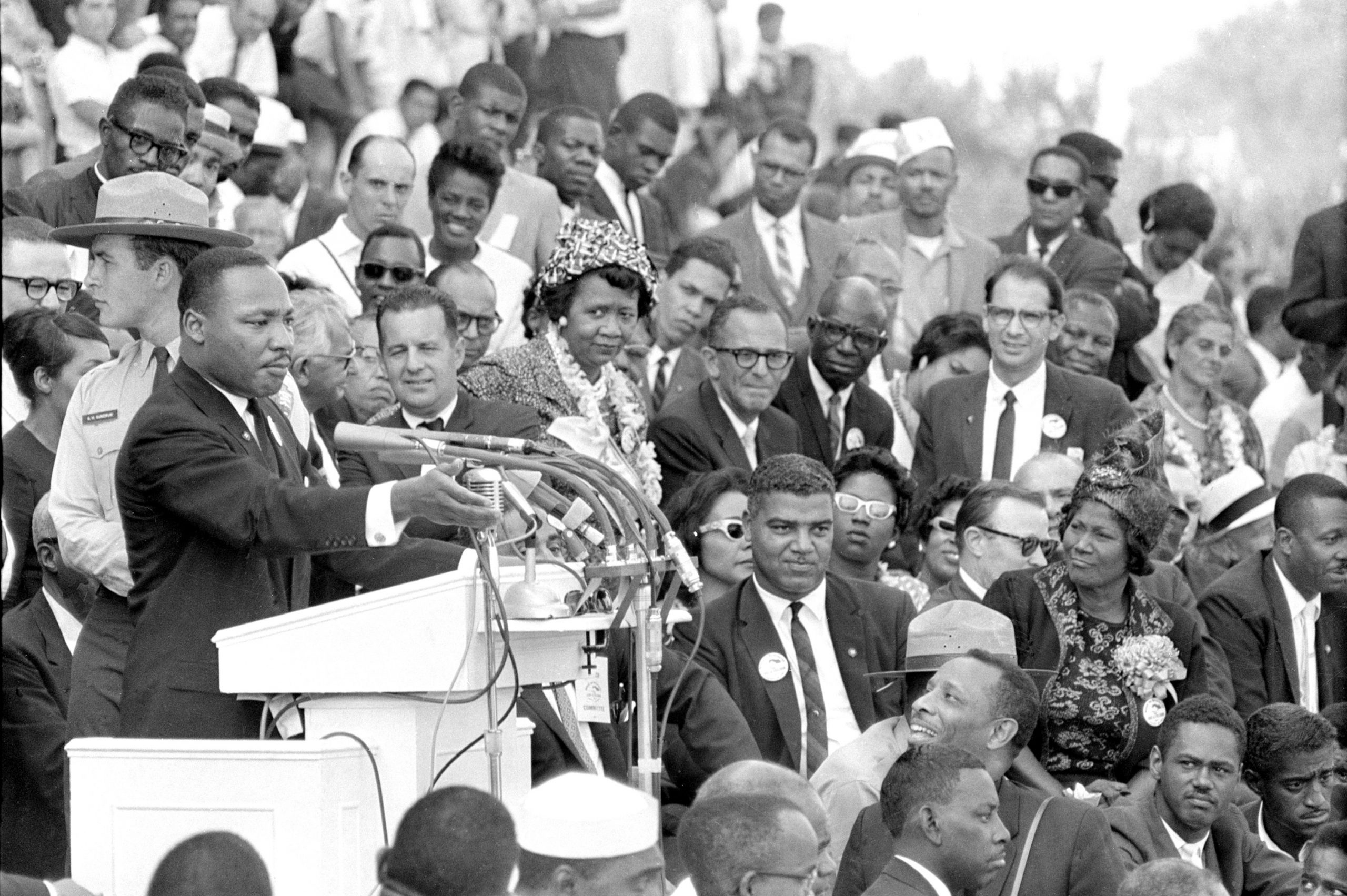
Martin Luther King Jr., head of the Southern Christian Leadership Conference, gestures during his “I Have a Dream” speech as he addresses thousands of civil rights supporters gathered in front of the Lincoln Memorial for the March on Washington for Jobs and Freedom in Washington, D.C., Aug. 28, 1963. Actor-singer Sammy Davis Jr. can be seen at extreme right, bottom. (AP Photo)
Second, we must remember King’s speech and its power to motivate.
The phrase “I have a dream” was more than just a clever way of saying what he wanted to see happen in the future. It was for him a prophecy of what could happen — although a prophecy he did not live to see fulfilled.
He famously said, “One day even the state of Mississippi, a state sweltering with the heat of injustice, sweltering with the heat of oppression, will be transformed into an oasis of freedom and justice.” And he said he dreamed that “my four little children will one day live in a nation where they will not be judged by the color of their skin but by the content of their character.”
We still have work to do, but in some important ways, King’s prophetic dream is coming to fruition.
We see no more segregation within public schools. We see no more segregation in the workforce. We live in a country where the opportunity for all races is more equal than ever before.
And a majority of Americans now judge people on the content of their character and not on the color of their skin.
We have not arrived, but I believe we are on the way. It takes a community of us, not just one person, to change the world.
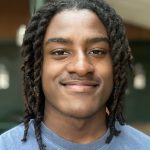
Jeremiah Bullock
Jeremiah Bullock is a junior at Wingate University and serves this semester as BNG’s Clemons Fellow.
Related articles:
Photo essay: 60th anniversary of the March on Washington
Author of new MLK biography explains the logistical miracle of the March on Washington
More than a dream: The undiluted legacy of Martin Luther King Jr. | Opinion by Joel Bowman
What you haven’t been taught about Martin Luther King

